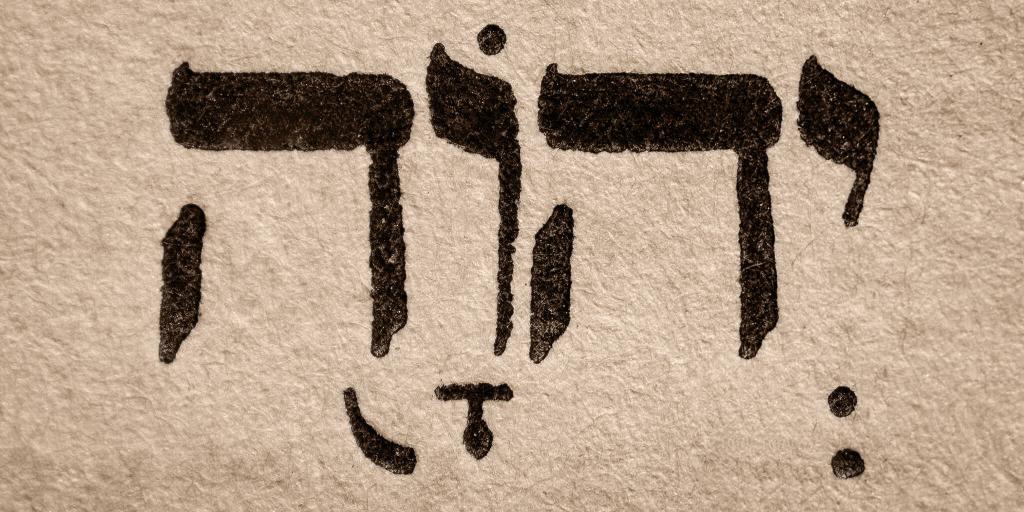
Four “Sacred Names” Errors
By what name should we call God? Is a specific language or pronunciation required? Does honoring God’s name require us to use Hebrew or Hebrew-related terms for God or Jesus—such as Yahweh, Yah, Yeshua, Yahushua, or Jehovah—as some claim?
No, it does not. Those who make such claims about so-called “sacred names” make a number of biblical errors. Here are four.
First, God is referred to by many names in Scripture, some of which describe many of His remarkable attributes. Some of them incorporate the “tetragrammaton”—the four-letter Hebrew word YHVH or YHWH that is associated with God, indicated in some English translations by the small-caps words “Lord” or “God” out of respect for the superstitious Jewish tradition of avoiding pronouncing the word. Examples of these are YHVH Ropheka, meaning The Eternal our Healer (Exodus 15:26), or YHVH Tsidqenu, meaning The Eternal our Righteousness (Jeremiah 23:6).
This YHVH is often touted by those who claim it must be used in addressing God. Yet it is noteworthy that the very scripture in which the YHVH name is revealed to Moses, Exodus 6:3, also explains that this name was not emphasized prior to Moses: “I appeared to Abraham, to Isaac, and to Jacob, as God Almighty, but by My name Lord [YHVH] I was not known to them.”
Indeed, the Bible uses many names for God that do not include YHVH. Melchizedek called Him El Elyon, meaning “God Most High” (Genesis 14:19), for example, and He is often called El Shaddai, meaning “God Almighty” (Genesis 28:3). Genesis 1:1 introduces the Godhead as Elohim. Even after the time of Moses, the righteous prophets and priests continued to refer to God by numerous names. For example, the “greatly beloved” Daniel prayed to God in Aramaic, calling Him Elah (e.g., Daniel 2:19–20). In fact, YHVH is not used in most of the book of Daniel, yet Daniel is considered one of the most exemplary believers in the Old Testament (Ezekiel 14:20).
The Bible simply does not support the idea that a specific name and a specific pronunciation must be used.
Second, even for those who would like to use a name based on the tetragrammaton, YHVH, there is simply no consensus regarding how it is pronounced. As we reported in 2023, the oldest Hebrew artifact yet discovered containing a name of God is “the Mt. Ebal tablet,” which does not seem to use the four-letter YHVH. Instead, it uses a three-letter YHW, which would have yielded a different pronunciation from the word many people argue over today. This ancient artifact, dated from within decades of Moses’ life, seriously undermines the theory that God revealed one pronunciation for Moses to preserve for all time. Perhaps unsurprisingly, even “sacred names” groups disagree with each other and cannot come to a consensus.
God simply did not consider it important to cause the Jews, who were responsible for preserving the “oracles of God” (Romans 3:2), to preserve any one particular pronunciation of the tetragrammaton. In fact, as we’ll see next, He did not even restrict His name to one language.
Third, “sacred name” proponents like to highlight the Apostle Peter’s comment in Acts 4 that the “name” of the Messiah is the only name under Heaven by which we can be saved (Acts 4:10–12), but they distance themselves from an inconvenient fact: Luke used the Koine Greek version of “Jesus Christ,” Iesous Christos, when he recorded Peter’s words. Ironically, the very passage that some use to argue that we must use a certain Hebrew pronunciation was preserved in Greek. And, of course, the Apostle Paul refers to God in the Greek as Theos, and no serious scholar disputes that Paul’s letters to Gentile churches were written in the Greek language.
Fourth, and perhaps most profound, is Jesus Christ’s own example. Jesus taught His disciples to address God in prayer as “our Father” (Matthew 6:9). And during His crucifixion, He called out to the Father in Aramaic, saying “Eloi, Eloi” (Mark 15:34). Even in His dying moments, the Son of God Himself did not use one of the so-called “sacred names” that proponents believe are so necessary.
Yes, we are thankful to know God’s many names, but there is no evidence that He enjoins us to use one particular word or pronunciation from Aramaic, Hebrew, or any language. Let’s not get caught up in thinking that we understand God’s mind on this matter better than the righteous prophets, the Apostles, or even the Messiah. We must honor God’s name, but as Ezekiel 20:39 explains, this is done through obedience, not through arguing about Hebrew-language pronunciations.
For more on this topic, you can read the article “The Truth About Sacred Names” and check out the Tomorrow’s World telecasts “Do You Fear God?” and “Five Steps to Truly Know God.”
Stay up to date with our Weekly Digest Email!
Tomorrow's World ComMentary Podcast
Subscribe to Tomorrow's World Commentary podcasts on iTunes and Google Play!



